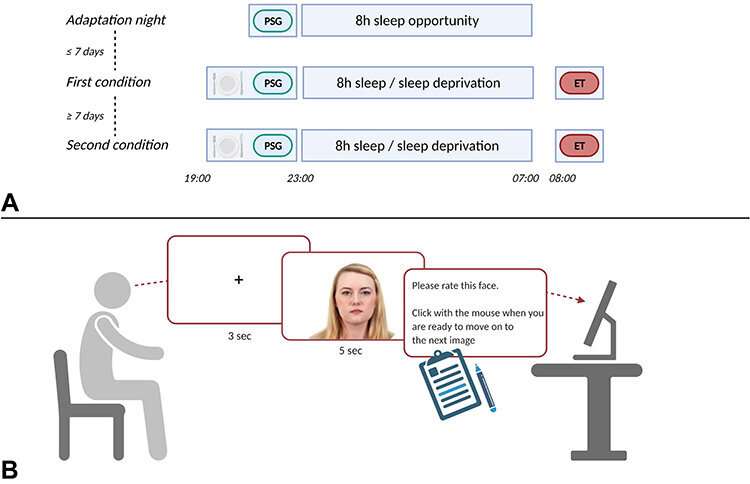Acute sleep loss may alter the way we see others

A new study from Uppsala University shows that young adults when sleep-deprived evaluate angry faces as less trustworthy and healthy-looking. Furthermore, neutral and fearful faces appear less attractive following sleep loss. The findings are published in the scientific journal Nature and Science of Sleep.
Using eye-tracking, a sensor technology that can detect what a person is looking at in real time, researchers from Uppsala University in Sweden performed an experiment on 45 young men and women to examine how acute sleep loss affects the way humans explore and evaluate happy, fearful, angry and neutral faces. The participants spent one night with no sleep at all and one night with an eight-hour sleep opportunity. Their eye movements were measured in the mornings following both nights.
"When sleep-deprived, our research subjects spent less time fixating on faces. Since facial expressions are crucial to understanding the emotional state of others, spending less time fixating on faces after acute sleep loss may increase the risk that you interpret the emotional state of others inaccurately or too late," says Lieve van Egmond, first author and Ph.D. student in the Department of Surgical Sciences at Uppsala University.
"The finding that sleep-deprived subjects in our experiment rated angry faces as less trustworthy and healthy-looking and neutral and fearful faces as less attractive indicates that sleep loss is associated with more negative social impressions of others. This could result in less motivation to interact socially," says senior author Christian Benedict, Associate Professor of Neuroscience.
"Our participants were young adults. Thus, we do not know whether our results are generalizable to other age groups. Moreover, we do not know if similar results would be seen among those suffering from chronic sleep loss," says Lieve van Egmond.
More information: Lieve T van Egmond et al, How Sleep-Deprived People See and Evaluate Others' Faces: An Experimental Study, Nature and Science of Sleep (2022). DOI: 10.2147/NSS.S360433
















